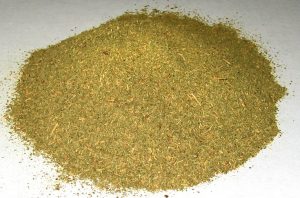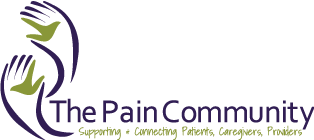
Attribution: English Wikipedia user Ingenium
What is Kratom?
Kratom is an herbal supplement that originates from a tropical tree (Mitragyna speciosa) which is native to Southeast Asia.Its leaves contain compounds that act similar to opioid and stimulant medications.According to the National Institute of Drug Abuse (NIDA), two of the compounds isolated in the plant leaves, mitragynine and 7-α-hydroxymitragynine, interact with opioid receptors in the brain.When taken in large amounts, Kratom produces sedation, pleasure, and decreased pain.Mitragynine also interacts with other receptor sites in the brain that produces a stimulant effect.When taken in small amounts, it acts like a stimulant; low dose Kratom increases energy, sociability, and alertness.Kratom has not been categorized as an illegal substance in the United States (yet).It is relatively easy to order online, though the quality of the manufacturer is not regulated, therefore no standard in quality controls are followed.This herb has other names, like: Biak, Ketum, Kakuam, Ithang, Thom; sometimes it is sold as a green powder in packets, as an extract or gum.Kratom is most commonly taken as a pill, capsule, or extract.Some chew the kratom leaves, brew the dried or powdered leaves as a tea, smoke the leaves or eat it in food.
Why is it being used?
It is reported that people use Kratom as a pain reliever, to avoid withdrawal symptoms from abrupt opioid tapering during pain treatment or management of substance use disorder.The most common report of use is for pain relief.It has been reported that people living with pain who have been forced to reduce or lose their opioid medication as a treatment option are turning to this option.This is not surprising to me.Is it to you?Blogs appear on a regular basis with information and testimonies.Some examples are:
Some of these blogs are more balanced in perspectives than others.Be informed, yet scrutinize.
Reported Side Effects:
- nausea/vomiting
- itching
- sweating
- dry mouth
- slowed breathing/sedation
- constipation
- increased urination
- loss of appetite
- agitation
- seizures
- hallucinations
- psychosis
- coma
Is it safe?
Post et al, Clinical Toxicology 2019, reported a review of 2011-2017 National Poison Data System which found that deaths have occurred following the use of Kratom–most involved with the use of other substances ranging from licit to illicit: diphenhydramine (Benadryl), alcohol, caffeine, benzodiazepines (like Xanax), fentanyl, and cocaine.There were two documented deaths from use of Kratom alone without the presence of other reported substances.In 2017, the FDA has reported that many Kratom-associated deaths were due to adulterated products or taking Kratom in combination with other potent substances, including illicit drugs, opioids, benzodiazepines, alcohol, gabapentin, and over-the-counter medications, such as cough syrup.It is advisable that those choosing to take Kratom, should consult with their healthcare provider to verify the risks if combined with prescribed and/or over the counter medications.A review of medications, herbals and vitamins should be a routine safe practice to avoid drug-drug (drug-herb) interactions.Physical dependence can occur just as with other substances (opioids, stimulants, beta-blockers, steroids, etc.).Withdrawal symptoms are similar to those of opioids and stimulants:
- muscle aches
- insomnia
- irritability
- hostility
- aggression
- mood swings
- runny nose
- jerky movements.
Kratom is listed as a chemical of concern by the Drug Enforcement Agency (DEA) and has been for several years.There is a movement to have it listed as a Schedule 1 Drug like LSD, Heroin and Marijuana—illegal/no clinical value.Researchers admit that it is not well understood and requires more research.Overdoses and deaths are monitored by Poison Control Centers which report data to the Centers for Disease Control & Prevention (CDC).The Food & Drug Administration (FDA) has issued public warnings against the use of Kratom with one warning which identified high levels of heavy metals found in imported supplies following that confiscation of products at ports of entry.Their message is buyer beware.In July 2019, Pain News Network published a call from researchers that Kratom is a public health threat.Just like any medication, herbal remedy, vitamin or dietary supplement, all have risks as well as benefits.Stay informed.Use a reliable pharmacy or manufacturer for substances where a prescription is not required—this includes over the counter medications.Know the interactions between each substance you are taking along with others.Talk with your pharmacist and/or healthcare provider if you are not sure about what you are taking or the effect(s) you are having.Please report if you are experiencing side effects.If you have wisdom to share about the use of Kratom, TPC would love to hear your story.Please share.We want to hear and learn from you.

Thank you so much for writing this article about this all natural plant that is helping millions of people with chronic pain, depression, lack of energy, and many other ailments.
We also have a lot of information on our website as well.
https://mykratomclub.com/blog/